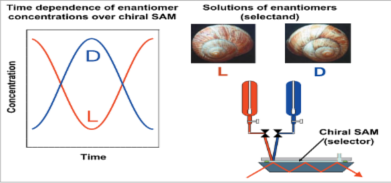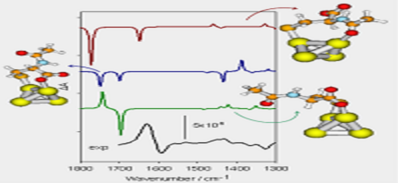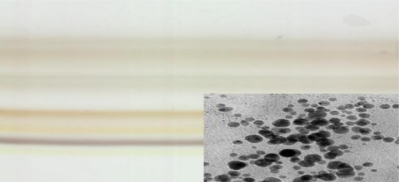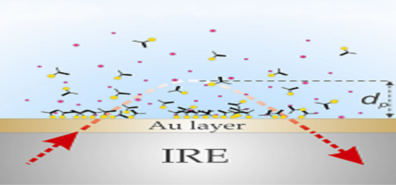Main Activities
The scientific importance of the research activities lies mainly in the development of spectroscopic methods allowing the study of the chemical reactions and intermolecular interactions which take place at the solid-liquid and solid-gas interfaces.
These tools allowed mechanistic studies for example on heterogeneous enantioselective hydrogenation, to develop enantioselective surfaces, and to modify surfaces by chemical methods.
More recently, chiral metal nanoparticles which were synthesized and separated according to their size and their qualities were studied.
Research orientations in the field of physical chemistry:
- surface chemistry
- nanochemistry
- development of in situ spectroscopic methods
Covered subjects:
- modification of surfaces with polymers for applications with biosensors
- preparation, characterization and organization in 1, 2, and 3 dimensions of metal nano-aggregates
- chiral surfaces and nanoparticles
- mechanistic studies of heterogeneous catalytic reactions by in situ spectroscopy (enantio-selective hydrogenations, selective oxidations, photocatalysis by TiO2)
- vibrational circular dichroism (VCD) for the determination of the conformation of molecules in solution (experiment and theory)
One of the most significant results is the development of the mechanism of heterogeneous enantioselective hydrogenation by modified Pt by alkaloids of cinchona by using a combination of in situ spectroscopies of the solid-liquid interface, quantum calculations and catalytic experiments. Another result, considered as very significant, is the determination, for the first time, of the structure of chiral molecules adsorbed on metal nanoparticules by vibrational circular dichroism (VCD).




